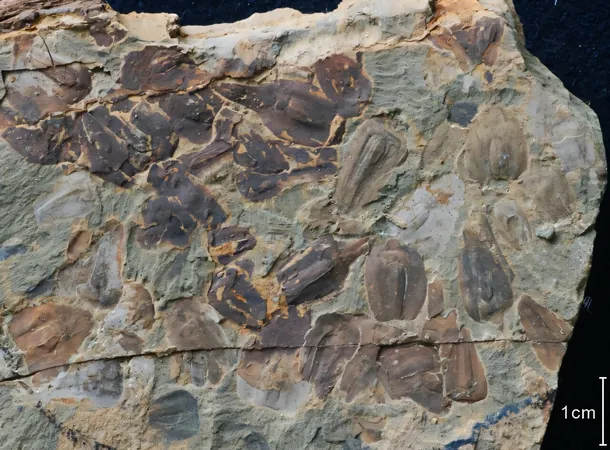
Shocking New Research Unveils Climate Catastrophe Triggered by Extinction Event!
2025-07-02
Author: Charlotte
The Great Dying: Unraveling Earth's Most Devastating Extinction
Around 252 million years ago, the Earth experienced the Permian–Triassic Mass Extinction, often dubbed the "Great Dying." This cataclysm led to a staggering loss of marine life and caused drastic declines in land species. Scientists have long debated the root causes of this event, previously pinpointing volcanic activities in Siberia as a catalyst for intense global warming. However, the mystery remained as to why these super-greenhouse conditions lingered for an astonishing five million years thereafter.
New Discoveries Illuminate the Role of Tropical Forests
Recent groundbreaking research from a team led by the University of Leeds and the China University of Geosciences has shed light on this enigma, revealing that the catastrophic demise of tropical forests played a crucial role in this prolonged warming period. Their findings reveal how the slow recovery of these forests hampered Earth's ability to sequester carbon—essentially failing to absorb carbon dioxide from the atmosphere.
Tracking the Climate with Fossil Clues
Through meticulous field studies and innovative fossil analysis, this international team reconstructed detailed maps illustrating shifts in plant productivity during the Great Dying. Their published results in Nature Communications indicate that the dramatic loss of vegetation significantly impaired carbon sequestration, leading to elevated CO2 levels that persisted for millennia.
A Stark Warning for Today's Climate Challenges
Dr. Zhen Xu, the study's lead author, emphasized, "This extreme warming episode remains unparalleled in history, and the collapse of tropical forests was pivotal." Their research highlights critical 'tipping points' in the climate-carbon system, signaling that once these thresholds are crossed, the warming becomes self-amplifying.
A Call to Action to Protect Tropical Ecosystems
Professor Benjamin Mills, who collaborated with Dr. Xu, warned that the current state of Earth's tropical forests is fragile. "If a rapid climatic shift causes their collapse now, we could face a relentless warming trend, even if CO2 emissions cease. The carbon cycle would be irrevocably altered, echoing patterns observed in Earth's distant past."
A Legacy of Discovery and Innovation
The research is deeply rooted in a rich geological history, as the China region boasts the most extensive records of the Permian-Triassic. Dr. Xu represents the latest in a line of geologists committed to uncovering the truth behind past extinctions and their implications for our future. Her team has traversed varied terrains in China, collecting vital fossil data over years.
Preserving the Future Through Innovative Science
In the words of Professors Hongfu Yin and Jianxin Yu, this work is about more than just advancing scientific understanding; it’s about safeguarding the future of life on Earth. As they stress, adopting innovative techniques and interdisciplinary collaboration is crucial for deciphering Earth's intricate history and preserving its future.









 Brasil (PT)
Brasil (PT)
 Canada (EN)
Canada (EN)
 Chile (ES)
Chile (ES)
 Česko (CS)
Česko (CS)
 대한민국 (KO)
대한민국 (KO)
 España (ES)
España (ES)
 France (FR)
France (FR)
 Hong Kong (EN)
Hong Kong (EN)
 Italia (IT)
Italia (IT)
 日本 (JA)
日本 (JA)
 Magyarország (HU)
Magyarország (HU)
 Norge (NO)
Norge (NO)
 Polska (PL)
Polska (PL)
 Schweiz (DE)
Schweiz (DE)
 Singapore (EN)
Singapore (EN)
 Sverige (SV)
Sverige (SV)
 Suomi (FI)
Suomi (FI)
 Türkiye (TR)
Türkiye (TR)
 الإمارات العربية المتحدة (AR)
الإمارات العربية المتحدة (AR)